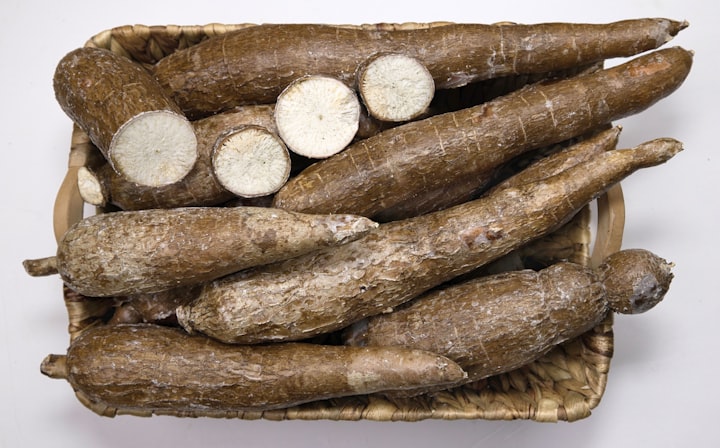The Common Foods That Contains Natural Poison That Can Cause Death Or Harm Our Health
Understanding the Risks to Our Health

Food is an essential part of our daily lives, providing nourishment and sustenance. However, it is crucial to be aware that certain common foods contain natural poisons that can pose risks to our health. While these toxins are present in small quantities and are typically harmless, consuming large amounts or mishandling these foods can result in severe health issues, and in extreme cases, even death. In this article, we will explore some common foods that contain natural poisons and discuss the potential dangers they pose to our well-being.
Apples:
Apples, often hailed as a symbol of health, contain a naturally occurring compound called amygdalin. This compound, found in apple seeds, releases cyanide when metabolized. While apple seeds are generally not consumed in significant amounts, their ingestion can lead to symptoms such as dizziness, headache, and in severe cases, respiratory failure. It is essential to avoid consuming apple seeds or to remove them before consumption.
Potatoes:
Potatoes are a staple food in many cultures, but certain varieties of potatoes can contain a toxic compound known as solanine. Solanine is found in higher concentrations in green potatoes or those with sprouts. Ingesting large amounts of solanine can lead to symptoms like nausea, vomiting, abdominal pain, and even neurological effects. To minimize the risk, it is crucial to discard any green or sprouted portions of potatoes before cooking or consuming them.
Mushrooms:
While mushrooms are a culinary delight, it is important to exercise caution when foraging or consuming them. Many wild mushrooms contain toxic compounds, such as amatoxins, which can cause severe liver damage or even be fatal. Differentiating between edible and poisonous mushrooms can be challenging, making it essential to rely on expert identification or purchase mushrooms from reliable sources.
Almonds:
Almonds are highly nutritious and commonly consumed, but bitter almonds contain a toxic compound called amygdalin, which releases cyanide when ingested. Bitter almonds are primarily used for flavoring extracts and not typically sold as raw nuts. However, it is crucial to be aware of this potential risk and avoid consuming bitter almonds or excessive amounts of foods containing bitter almond extracts.
Shellfish:
Shellfish, including oysters, clams, and mussels, are known to accumulate toxins from their marine environment. Red tide, a phenomenon caused by the proliferation of toxic algae, can contaminate shellfish with harmful toxins such as saxitoxins and domoic acid. Consuming contaminated shellfish can lead to paralytic shellfish poisoning or amnesic shellfish poisoning, which can cause severe neurological symptoms and even be life-threatening. To minimize the risk, it is vital to ensure that shellfish come from safe and regulated sources.
Rhubarb:
Rhubarb is a versatile plant used in both sweet and savory dishes. However, its leaves contain oxalic acid, a toxic substance that can cause kidney damage and other health issues if ingested in large quantities. It is crucial to avoid consuming rhubarb leaves and focus on consuming only the edible stalks, which have a lower oxalic acid content.
Cassava:
Cassava, a staple crop in many parts of the world, contains cyanogenic glycosides, which can release cyanide when processed or consumed improperly. While processing methods, such as soaking and cooking, help reduce the cyanide content, improper preparation can lead to cyanide poisoning. It is crucial to follow proper processing techniques when preparing cassava to ensure its safe consumption.
While the foods mentioned above can provide various nutritional benefits, it is vital to be aware of the potential risks associated with natural poisons they pose. Understanding these risks empowers us to make informed choices about our food consumption and take necessary precautions to ensure our safety.
It is important to note that the presence of natural poisons in these common foods does not mean they should be avoided altogether. Instead, it emphasizes the significance of proper handling, preparation, and moderation.
Most of these toxins are present in small amounts and pose minimal risk when consumed in normal quantities. By following basic guidelines and practicing sensible eating habits, we can continue to enjoy these foods without compromising our health.
To mitigate the risks associated with natural poisons in common foods, it is advisable to:
Educate ourselves: Stay informed about the potential hazards related to specific foods. Awareness of the risks helps us make informed decisions and take necessary precautions.
Seek expert advice: If unsure about the safety of a particular food, consult professionals such as nutritionists, toxicologists, or reputable sources to gain accurate information and guidance.
Source food responsibly: Purchase food items from trusted suppliers who adhere to proper quality control measures. This is especially crucial when it comes to shellfish, mushrooms, and other foraged foods.
Properly handle and store food: Ensure proper hygiene and storage conditions to prevent contamination and bacterial growth. Discard any produce showing signs of spoilage or damage.
Practice moderation: While the majority of these toxins are harmless in small quantities, excessive consumption can lead to adverse health effects. Maintain a balanced diet and avoid overindulgence.
Natural poisons found in common foods serve as a reminder that even the most seemingly harmless ingredients can pose risks if mishandled or consumed in large amounts. By understanding these risks, staying informed, and adopting responsible food practices, we can continue to enjoy a diverse and nourishing diet without compromising our health. Let us embrace the wisdom of balanced consumption, ensuring that our food choices contribute to our well-being and enhance our overall quality of life.
About the Creator
Bridget Dyke
As a passionate writer of fiction and general articles, I invite you to embark on an extraordinary literary journey with me. With immersive stories and thought-provoking articles that will captivate your mind and touch your soul.






Comments
There are no comments for this story
Be the first to respond and start the conversation.